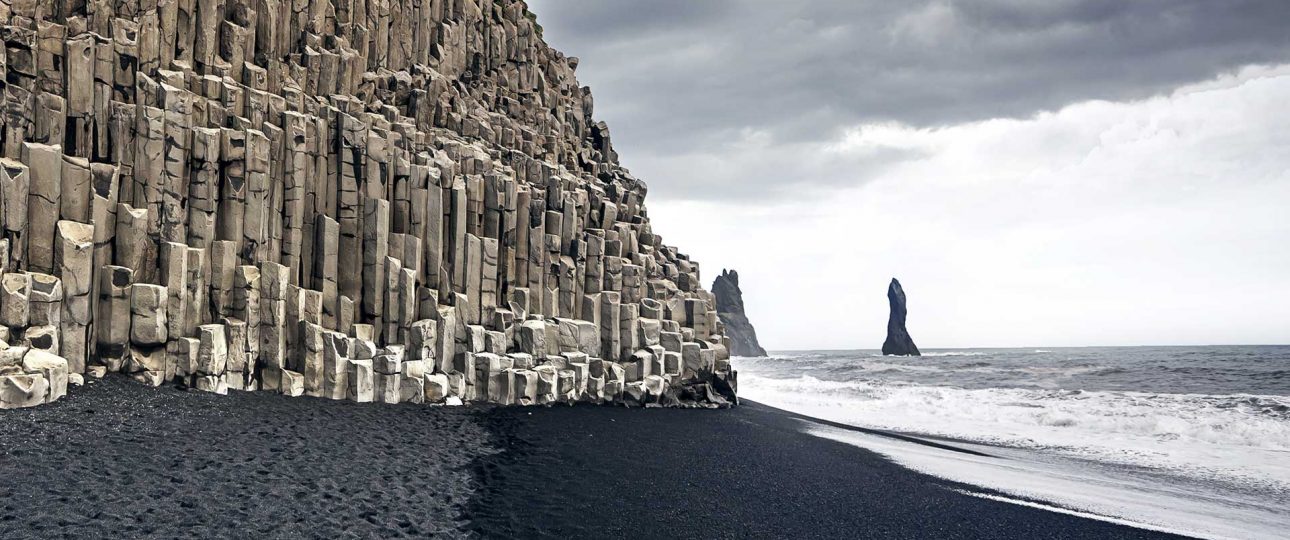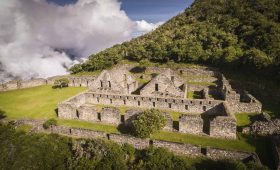Reynisfjara Beach: Iceland’s Enchanting Black Sand Shore
Introduction
Reynisfjara Beach, located on Iceland’s southern coast near the village of Vík í Mýrdal, is renowned for its striking black sand, dramatic basalt columns, and the powerful waves of the Atlantic Ocean. This guide will explore the unique features of Reynisfjara and provide practical tips for visiting this extraordinary destination.
Location and Geography
Situated approximately 180 kilometers southeast of Reykjavik, Reynisfjara Beach is easily accessible via Route 1, also known as the Ring Road. The beach is framed by the impressive Reynisdrangar sea stacks, which rise majestically from the ocean, and the towering cliffs of Reynisfjall. This combination of volcanic black sand and dramatic geological formations creates a unique and unforgettable setting.
Unique Features
Black Sand
The black sand of Reynisfjara is a result of volcanic activity, where lava has cooled and fragmented into fine particles. This distinctive sand offers a tactile connection to Iceland’s geological history and provides a stark contrast to the white foam of the crashing waves.
Basalt Columns
Reynisfjara is famous for its geometric basalt columns, formed by the slow cooling of lava. These hexagonal formations create a natural architectural wonder that draws photographers and nature enthusiasts alike. The columns are a testament to the island’s volcanic origins and add to the beach’s allure.
Reynisdrangar Sea Stacks
The Reynisdrangar sea stacks are steeped in local legend, believed to be the petrified remains of trolls caught by the sunlight. These towering formations contribute to the mystical atmosphere of the beach and are a popular subject for photographers.
Wildlife
During the summer months, the cliffs around Reynisfjara become a nesting ground for puffins, making it a popular spot for bird watchers. Other bird species, such as guillemots and fulmars, can also be observed, adding to the beach’s ecological richness.
Best Time to Visit
Reynisfjara Beach can be visited year-round, each season offering its own unique charm. In summer, from June to August, the weather is milder, and wildlife is more active. Winter visits offer the chance to witness the northern lights, though visitors should be prepared for colder temperatures and shorter daylight hours. Regardless of the season, it’s advisable to dress in layers and be prepared for Iceland’s unpredictable weather.
How to Get There
Reynisfjara Beach is accessible by car via Route 1. The drive from Reykjavik offers scenic views of Iceland’s diverse landscapes. For those preferring public transport, bus lines 12, 20, and 51 serve the area. Alternatively, organized tours often include Reynisfjara as part of their itinerary.
Safety Considerations
While Reynisfjara Beach is a stunning destination, it is also known for its dangerous sneaker waves, which can surge unexpectedly far inland. Visitors should heed the multilingual warning signs and stay within designated safety zones. Swimming is strictly prohibited due to the strong currents and unpredictable waves. Icelandic authorities have implemented a real-time wave-forecasting system and other safety measures to enhance visitor safety.
Local Amenities
On-site amenities include a large parking area, where a fee is required via the parka.is app, and the Black Beach Restaurant, known for its local cuisine. These facilities provide convenient options for visitors looking to extend their stay at the beach.
Conclusion
Reynisfjara Beach offers a unique blend of natural beauty and geological wonder. Its black sands, basalt columns, and vibrant wildlife make it a must-visit for those exploring Iceland. By respecting the natural environment and adhering to safety guidelines, visitors can enjoy a memorable and safe experience at this remarkable location.




